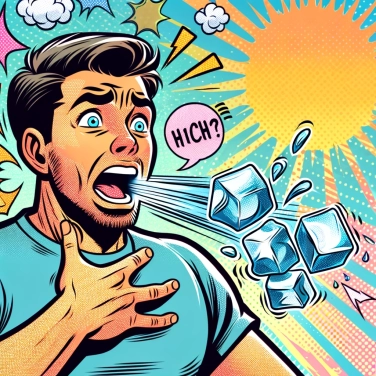In detail, for those interested!
First factor: effect of cold on vocal cords
When we swallow an ice cube, the intense cold of the ice can have a direct impact on our vocal cords. In contact with the ice, the tissues of our vocal cords quickly cool down, which can lead to a temporary contraction of the surrounding muscles. This contraction can alter the frequency and tension of the vocal cords, which can temporarily change our voice and sometimes give it a higher or hoarser tone. This change is usually short-lived, as once the tissues warm up, the voice returns to its usual timbre. It is important to note that this phenomenon is temporary and generally does not cause any permanent damage to the vocal cords.
Second factor: contraction of the throat muscles.
Swallowing an ice cube can cause a contraction of the throat muscles. This phenomenon is partly due to our body's reaction to the sudden cold caused by the ice cube. When the throat muscles contract, it can affect the way air flows through the respiratory tract and vocal cords. This contraction can temporarily alter the coordination of muscle movements necessary for normal voice production. Throat muscles are essential for controlling the quality and power of our voice, and any disruption in their functioning can affect how we speak or sing.
Third factor: modification of mucous viscosity
The viscosity of the throat mucosa can also play a role in changing our voice when we swallow an ice cube. Indeed, the cold from the ice can cause vasoconstriction, which is a decrease in the diameter of blood vessels, resulting in a decrease in blood supply to the throat mucosa. This reduction in blood flow can lead to a decrease in mucus production, thus impacting the viscosity of the mucosa. A decrease in mucosal viscosity can influence how sound vibrations propagate in the throat, which can contribute to temporarily changing the quality of our voice when ingesting an ice cube.
![Explain why some countries change time zones?]()
![Explain why Alexander the Great refused to wear shoes.]()
![Explain why Alexander the Great always wore an impressive helmet.]()
![Explain why the last Chinese emperor was so young when he came to power?]()





















